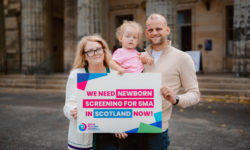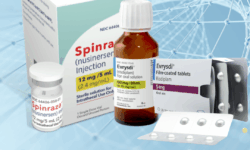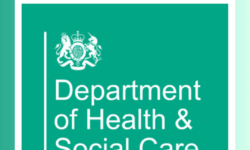The importance of care coordination for those living with SMA should not be underestimated. There are a huge range of clinicians, working in both local and specialist hospitals who are responsible for the many different aspects of care in SMA.
To ensure that those living with SMA can get on with living their lives, these professionals need to work together as a team, with effective communication between and within different hospitals, thus minimising the impact of appointments on people’s busy lives.
Unfortunately, as was found in the CONCORD (CoOrdiNated Care of Rare Diseases) study, in most cases, this is not happening. Many people living with SMA experience care that is not well coordinated. In local hospitals there is a lack of awareness and understanding of SMA, people are required to tell their medical history over and over to each new clinician, this can sometimes be very traumatic. Even within some of the specialist hospitals, clinics are run on different days, so it is very difficult to see everyone in just one trip. Any attempt to coordinate appointments seems to fall on the individual or the family living with SMA.
These are issues echoed by the whole rare disease community. Genetic Alliance UK produced a report which summarises the care coordination experiences of the rare disease community and makes some recommendations for change. It calls for:
- Disease specific clinics, where patients can see clinicians from the whole range of specialisms.
- Delivery of well organised logistical support.
- Effective transition from children’s to adult’s services.
- A bridging of the gap between healthcare and other services, such as education and benefits.
- An integration of support from rare condition charities and support groups.
On Tuesday 16th May, Portia, our Advocacy Lead, represented SMA UK at an All Party Parliamentary Group (APPG) meeting on care coordination. With representatives from other rare disease groups, Louise Fish, Chief Executive of Genetic Alliance UK, and senior health professionals, we were able to share our personal experiences and suggest how change could be implemented. For example, a WhatsApp contact with the SMA Clinical Nurse Specialist at one specialist paediatric hospital has recently enabled families to coordinate of appointments through her, instead of writing multiple e-mails to different clinicians. A small, low-cost initiative that has made a big difference.



